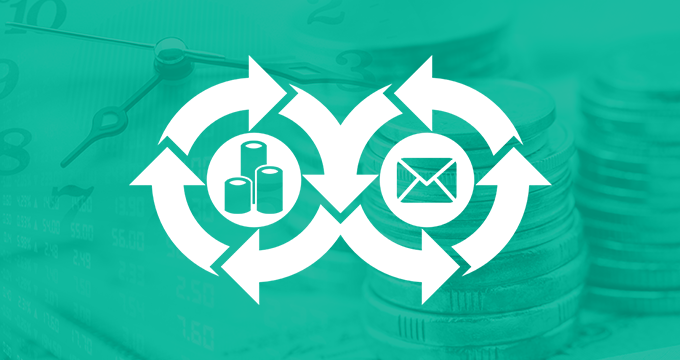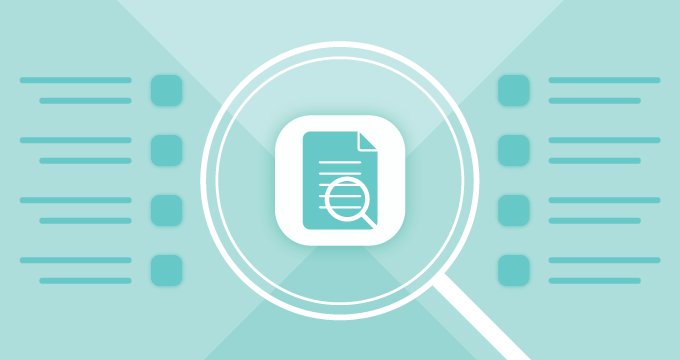Archiving systems have become a cornerstone of modern business operations. From managing storage to enabling ediscovery, information archiving safeguards compliance, simplifies data management, and enhances productivity.
In this blog post, we’ll discuss:
- The development of information archiving
- Its importance and benefits
- How information archiving addresses modern-day business challenges
A Brief History of Information Archiving
Before the early 2000s, email archiving was a niche concept primarily reserved for industries with specific legal or regulatory obligations. Fewer than 1% of businesses saw the need to archive their communications.
Early solutions were rudimentary at best, relying on manual configurations and requiring significant IT oversight. Data was often exported to tape backups or other physical storage media, making retrieval time-consuming and error-prone. These methods offered little scalability or automation, leaving businesses vulnerable to data loss and compliance risks. The process of managing growing data volumes was inefficient, expensive, and far from user-friendly.
The birth of archiving appliances
In 2004, Jatheon revolutionized the industry by introducing the world’s first email archiving appliance. This innovation marked a turning point by addressing the inefficiencies of early solutions.
Archiving appliances automated the process of capturing and storing email data. Unlike their predecessors, these appliances were designed to:
- Simplify configuration — Plug-and-play capabilities eliminated the need for complex setups.
- Enhance security — Data was stored in a tamper-proof format, ensuring compliance with emerging regulations.
- Improve scalability — The appliances could handle larger volumes of data compared to earlier tape-based systems.
This development set a standard for other vendors and made email archiving accessible to organizations of all sizes. Public companies and heavily regulated industries were the first to adopt these appliances, paving the way for widespread use.
The turning point was the collapse of Enron in 2001 and the subsequent destruction of 30,000 emails by Arthur Andersen, which underscored the importance of proper record retention. This scandal led to the introduction of the Sarbanes-Oxley Act (SOX), which mandates rigorous retention and accessibility requirements for business records, including digital communications.
Modern archiving solutions ensure compliance with such regulations by:
- Implementing automated retention policies that preserve records for legally mandated periods.
- Enabling role-based access control to protect sensitive information while maintaining accountability.
- Offering audit trails and legal hold features to secure data during litigation or regulatory inquiries.
The cloud revolution
As businesses expanded and communication technologies proliferated, on-premise solutions encountered their limitations. Chief among these were storage constraints, escalating maintenance costs, and difficulties in managing growing data volumes.
The emergence of cloud archiving addressed these issues head-on. By shifting data storage to the cloud, organizations gained access to:
- Scalability — Cloud solutions could accommodate virtually unlimited data growth.
- Cost efficiency — Businesses avoided the upfront investment and maintenance costs associated with on-premise hardware.
- Remote access — Cloud systems enabled users to access archived data from anywhere, streamlining operations for distributed teams.
While early adopters hesitated due to concerns about security and compliance, advancements in encryption and multi-layer authentication eased those fears. By the mid-2010s, cloud archiving was recognized as a viable and often superior alternative to traditional systems.
Read about the difference between on-premises vs. cloud systems.
What Are the Main Benefits of Information Archiving?
Eliminating storage concerns
Manually managing the storage of business-critical information is both time-consuming and costly, with several inherent risks. Organizations without a dedicated archiving solution often face challenges such as:
- Data fragmentation — Critical information gets dispersed across multiple servers, hard drives, and backup systems. This disorganized structure makes it difficult to locate and retrieve data efficiently, leading to inefficiencies and increased risk during audits or litigation.
- High maintenance costs — Maintaining traditional storage setups demands constant oversight. Servers require 24/7 operation, regular updates, and backups, as well as physical space and cooling systems. The cumulative expenses of hardware, utilities, and labor quickly add up.
- Increased risk of data loss — Relying on fragmented systems or physical hard drives creates vulnerabilities. Hardware failure, accidental deletion, or lack of proper backup procedures can lead to irreversible data loss, jeopardizing compliance and operational continuity.
A dedicated archiving solution eliminates these issues by consolidating all organizational data into a centralized, secure repository. Whether hosted on-premise or in the cloud, such systems:
- Streamline storage by centralizing data.
- Reduce maintenance overhead by automating processes like backups and indexing.
- Enhance data security, ensuring sensitive information is accessible when needed and protected against loss or tampering.
Relieving system pressure
When business systems are tasked with simultaneously storing, processing, and accessing vast amounts of data, the strain can overwhelm even the most robust infrastructure. This overburdening results in:
- Performance issues — Email servers, databases, and data storage systems slow down as their capacity is pushed to its limits. Sluggish performance not only hampers productivity but also frustrates employees and clients who depend on seamless communication and access.
- Increased risk of system failure — As storage demands escalate, so does the likelihood of crashes. These failures can result in prolonged downtime, productivity losses, and the potential loss of critical information.
Archiving solutions address these challenges by offloading inactive or less frequently accessed data to a dedicated repository. This approach:
- Relieves strain on primary systems, allowing them to function efficiently.
- Minimizes the likelihood of crashes and downtime by reducing system load.
- Provides a secure, long-term storage solution for inactive data that may still be needed for compliance or operational purposes.
Facilitating retrieval and ediscovery
Efficient data retrieval is essential in today’s legal and regulatory environment. However, many organizations are ill-equipped to meet these demands:
- High ediscovery costs — Companies in the U.S. spend $40 biliion annually on ediscovery processes, primarily because their systems lack the automation and search capabilities needed for efficient data retrieval. This amount accounts for 80% of litigation spend.
- Non-compliance penalties — Failing to provide complete and accurate data during audits or litigation can result in fines, reputational damage, and operational setbacks.
Archiving solutions streamline retrieval and ediscovery by indexing all communications, including emails, social media interactions, instant messages, and attachments. This enables organizations to:
- Perform precise, keyword-based searches within seconds.
- Retrieve relevant data quickly to meet legal deadlines.
- Avoid the costs and time associated with manual reviews or third-party data recovery services.
Boosting employee productivity
Employees spend nearly a third of their workweek handling emails, much of which involves organizing inboxes and clearing out old messages to avoid exceeding storage quotas.
This time-consuming task contributes to the following:
- Lower productivity — Valuable time is diverted from strategic or revenue-generating activities.
- Increased errors — Handling large volumes of email increases the likelihood of accidental deletions or overlooking critical messages.
Archiving solutions eliminate these inefficiencies by providing centralized, unlimited storage for all communications, including emails, attachments, and metadata. Employees can confidently delete unnecessary emails, knowing that copies are securely preserved in the archive.
Additionally, these solutions:
- Automate email organization, reducing clutter and improving user experience.
- Allow employees to focus on higher-priority tasks instead of worrying about storage limits.
- Support IT staff by minimizing the need for manual inbox management or data recovery efforts.
How Information Archiving Addresses Modern Challenges
Today’s dynamic business environment creates an array of challenges that demand robust and adaptable archiving solutions. These challenges stem from the rapid adoption of new communication tools, increasingly stringent data privacy laws, and the growing complexity of managing enterprise information.
Hybrid work environments
The shift to hybrid and remote work, accelerated by the COVID-19 pandemic, has fundamentally changed how employees communicate and collaborate. Traditional reliance on email has expanded to include a broad array of tools, such as:
- Collaboration platforms — Microsoft Teams, Slack, and Asana have become indispensable for project management and team coordination.
- Video conferencing tools — Platforms like Zoom and Google Meet are now integral to daily operations, generating valuable business records in the form of transcripts, recordings, and chat logs.
- Instant messaging apps — Services like WhatsApp, Signal, and Telegram are increasingly used for quick internal and external communication.
This multi-channel communication environment creates challenges in data management, particularly when organizations are required to capture, retain, and produce records from all these platforms. Modern archiving solutions address these challenges by allowing:
- Comprehensive data capture — Automatically archiving communication data from emails, collaboration tools, instant messaging apps, and video platforms.
- Unified access — Centralizing all archived data in a single repository, making it easier to search, retrieve, and manage records from diverse sources.
- Compliance readiness — Ensuring that data generated across all platforms meets industry-specific retention and accessibility standards.
Data privacy laws
The proliferation of data privacy laws, such as the General Data Protection Regulation (GDPR) in Europe and the California Consumer Privacy Act (CCPA) in the United States, has added layers of complexity to data management. These regulations mandate:
- Enhanced data protection — Organizations must secure personal data to prevent breaches and misuse.
- Retention controls — Data should only be kept for as long as necessary to fulfill its intended purpose, with clear rules for deletion once retention periods expire.
- Transparency and access rights — Individuals have the right to request access to their data, inquire how it is used, and request its deletion if applicable.
Modern archiving solutions are designed to help businesses navigate these requirements through advanced features, including:
Advanced search and export
Organizations must respond quickly and accurately to audits, legal inquiries, or data subject access requests (DSARs). Advanced search capabilities enable:
- Precise filtering based on keywords, dates, or metadata to locate relevant records.
- Fast and seamless export of requested data in legally acceptable formats, ensuring compliance with tight deadlines and reducing the risk of penalties.
Automated retention and deletion policies
Compliance requires strict adherence to data retention schedules, and automation can ensure that policies are consistently applied. Key functionalities include:
- Retention scheduling — Automatically categorizing and retaining data based on predefined retention periods.
- Automated deletion — Secure removal of records that are no longer needed, minimizing the risk of retaining unnecessary or non-compliant data.
Audit trails and legal hold
Maintaining accountability and protecting critical records during investigations or litigation is essential. Features that support these goals include:
- Audit trails — Detailed logs of user actions within the archive provide transparency, and help demonstrate compliance during audits or disputes.
- Legal hold capabilities — Preventing the deletion of specific records ensures they remain intact and accessible for as long as they are needed, regardless of retention schedules.
These features enhance data governance, making it easier for businesses to demonstrate compliance and protect against legal and financial risks.
Summary of the Main Points
- Information archiving has advanced from manual, error-prone systems to modern solutions, including on-premise, cloud, and hybrid models, tailored to today’s compliance and operational needs.
- Centralized archives reduce fragmentation, cut maintenance costs, and safeguard data against loss. By offloading inactive data, information archiving enhances system performance and prevents costly downtime.
- Advanced search tools make it easy to locate data for audits or legal cases, saving time and reducing compliance risks.
- Automated retention policies, secure deletion, and legal hold features help businesses meet GDPR, CCPA, SOX, GLBA and other government imposed or industry requirements.
- Archiving now supports diverse platforms like social media and chat apps, ensuring compliance across various communication channels.
Stay compliant with Jatheon and ensure your data archiving practices meet the latest regulations. Our advanced archiving solutions provide secure, centralized storage for all your communication data, including emails, social media, and collaboration platforms. Book a demo to learn more.
FAQ
How do information archiving solutions enhance productivity?
They eliminate storage quotas, streamline everyday searches, and allow employees to focus on strategic tasks instead of managing emails and other types of communication records manually.
Are cloud archiving solutions secure?
Yes. Modern cloud solutions come with compliance and security certifications, as well as encryption and advanced access controls.
What types of data can be archived?
Archiving solutions support email, social media, instant messages, collaboration platform data, and even mobile communications and video conferencing.
Can unstructured data be archived?
Yes, unstructured data can be archived. Modern archiving solutions are designed to handle not just structured data (like emails or databases) but also unstructured data (documents, videos, images, or social media content). As unstructured data makes up the majority of enterprise information today, archiving it is essential for maintaining a comprehensive and compliant information management strategy.











